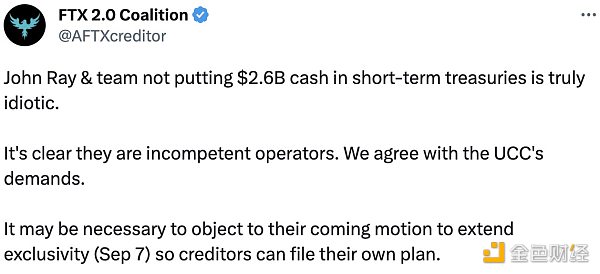Bundesbank: Blockchain financial solutions are slower and more expensive than current standards
The prospect of blockchain finance is now a question mark.
Bloomberg reported on the 29th that the German central bank governor Jens Weidmann said recently that a pilot project integrating blockchain technology, although achieving all the "basic regulatory functions" of financial transactions, proved to be expensive compared to current standards. slowly.
Weidmann said that the blockchain solution did not do better in all aspects and required a longer time process, which led to relatively high costs and therefore was not breakthrough.
Although Weidmann has a negative attitude towards the blockchain, more and more central banks around the world are adopting distributed ledger technology, or at least praising their prospects.
- The first blockchain membership card issued in Hangzhou
- Analysis of the market: BTC kills more than the market, the June favorable market is terminated in advance?
- The Japanese House of Representatives passed a new encryption regulation, and the FSA detailed interpretation of the bill
ECB Executive Committee Yves Mersch said not to adopt policies that might inhibit innovation; instead, the ECB wants to ensure that the changing needs of the market are met in a safe manner.
Blockchain media CCN reported on the 29th that although the Bundesbank's blockchain project failed to improve on the basis of existing operations, advocates still believe that the value of distributed ledger technology will eventually be highlighted over time.
What is “distributed ledger technology”?
The combination of blockchain and finance is in the digital currency, but its distributed ledger technology was once favored by financial regulators, hoping to promote the existing clearing and settlement mechanism to a cheaper and faster direction.
Wall Street’s observations have previously stated that when financial institutions use cryptocurrency for liquidation, such as buying and selling bonds or stocks, they do not have to wait for traditional currency wire transfers to directly use electronic money. These electronic currencies can be converted back to cash at the central bank. This approach can greatly reduce the time and money costs of transaction clearing. Electronic coins can be converted into different currencies, but they are stored in the blockchain, so they can be used for various transactions immediately.
Sheng Songcheng, a member of the People's Bank of China, said earlier that based on blockchain technology and a local currency with distributed ledger characteristics, the central bank's digital currency can achieve “peer-to-peer” payment settlement without the need for third-party centralization agencies, which will help Building a new financial infrastructure, further improving the payment system and improving the efficiency of payment settlement.
In a report, Oliver Wyman estimates that the global financial industry pays between $65 billion and $80 billion a year for transaction clearing.
Since 2016, the German Central Bank, the Deutsche Bundesbank and the Deutsche Börse have experimented with blockchain solutions in the clearing area, including the issuance, settlement, corporate conduct and redemption of bonds, as well as the supply of digital currencies, market participants. The process of cash transfer between the transfer and settlement of cash payments.
*This article is from Wall Street (WeChat ID: wallstreetcn). Author: Hu Chen
We will continue to update Blocking; if you have any questions or suggestions, please contact us!
Was this article helpful?
93 out of 132 found this helpful
Related articles
- The market is experiencing violent smashing, is it a bull trap or a strong dishwashing?
- In-depth report on "New Yorker": Ethereum Enemy Record (below)
- IBM: How to reshape a smart planet with blockchain
- Long text: a feasibility framework for exploring cryptocurrency privacy and regulation
- Restore real blockchain: 3 dimensions and 3 misunderstandings
- Big rise and fall! Bitcoin fell $1,100 after breaking $9,000
- Bitcoin skyrocketed, but the blockchain looked "indifferent"






